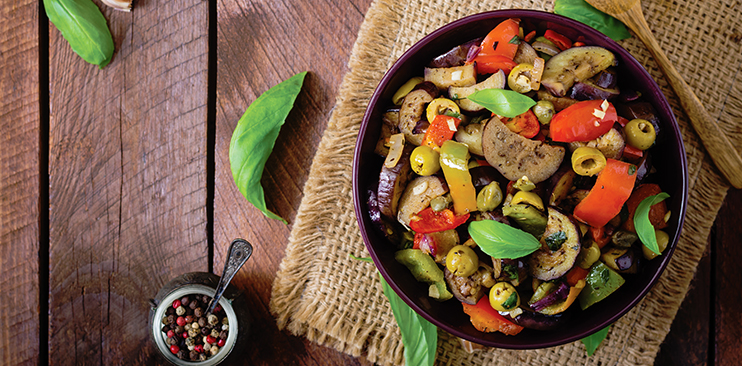On a recent trip to the beautiful island of Sicily, I learned that Sicilians have an increased life expectancy compared to their Italian mainland counterparts.
Moreover, this population has an exceptionally high number of centenarians. Studies demonstrate that several key factors determine longevity, such as genetics and environment. The latter of these two includes nutrition. It has been well established that the Mediterranean diet (high in healthy fats, fish, legumes and vegetables and low in red meat and refined carbohydrates) is one of the healthiest in the world – and one of the best for individuals with SCI. But what is it about the Sicilian diet that is seemingly even more beneficial for us?
Their long life expectancy may have something to do with their long, complex history. Sicily has been conquered by a multitude of nations including the Romans, Greeks, Spanish, Moors, Normans and Phoenicians among others. While Sicilian cuisine falls under the Mediterranean Diet, the turnstile of these ruling cultures over the centuries has heavily influenced their diet making it exceptionally unique. For example, raisins, eggplant, nutmeg, clove and saffron are common ingredients used in Sicilian dishes, but are not found in typical Mediterranean recipes.
Caponata is a delicious example of Sicily’s distinct cuisine and this eggplant based dish has a vast array of health benefits for people with SCI. For instance, eggplant is high in fibre, which not only helps to maintain regular bowel routines, but also helps stabilize blood sugar levels, which is important for weight loss. Vinegar supports digestion, which is vital for those of us with compromised digestive function, and it supports bone health by enhancing calcium absorption. Lastly, the eggplant, tomatoes, garlic, raisins and olive oil make up an army of antioxidants to help protect us from one of our biggest enemies, cardiovascular disease.
Serve Cantata cold or warm as an appetizer, side dish or snack!
Caponata
- 5 tablespoons olive oil
- 1x 11/2 pound eggplant, unpeeled, cut into 1/2 inch cubes
- 1 medium onion, cubed
- 4 large garlic cloves, chopped
- 1x 141/2 ounce can diced tomatoes in juice
- 3 tablespoons red wine vinegar
- 2 tablespoons drained capers
- 2 tablespoons raisins
- 1/3 cup chopped fresh basil
- Toasted pine nuts
- Heat oil in heavy large pot over medium heat. Add eggplant, onion and garlic cloves. Sauté until eggplant is soft and brown, about 15 minutes.
- Add diced tomatoes with juice, raisins, then red wine vinegar and drained capers. Cover and simmer until eggplant and onion are very tender, stirring occasionally, about 12 minutes.
- Season caponata to taste with sea salt and pepper. Mix in fresh basil.
- Transfer caponata to serving bowl. Sprinkle with toasted pine nuts. Serve warm at room temperature, or cold. (Caponata can be made two days ahead. Cover and chill.)






